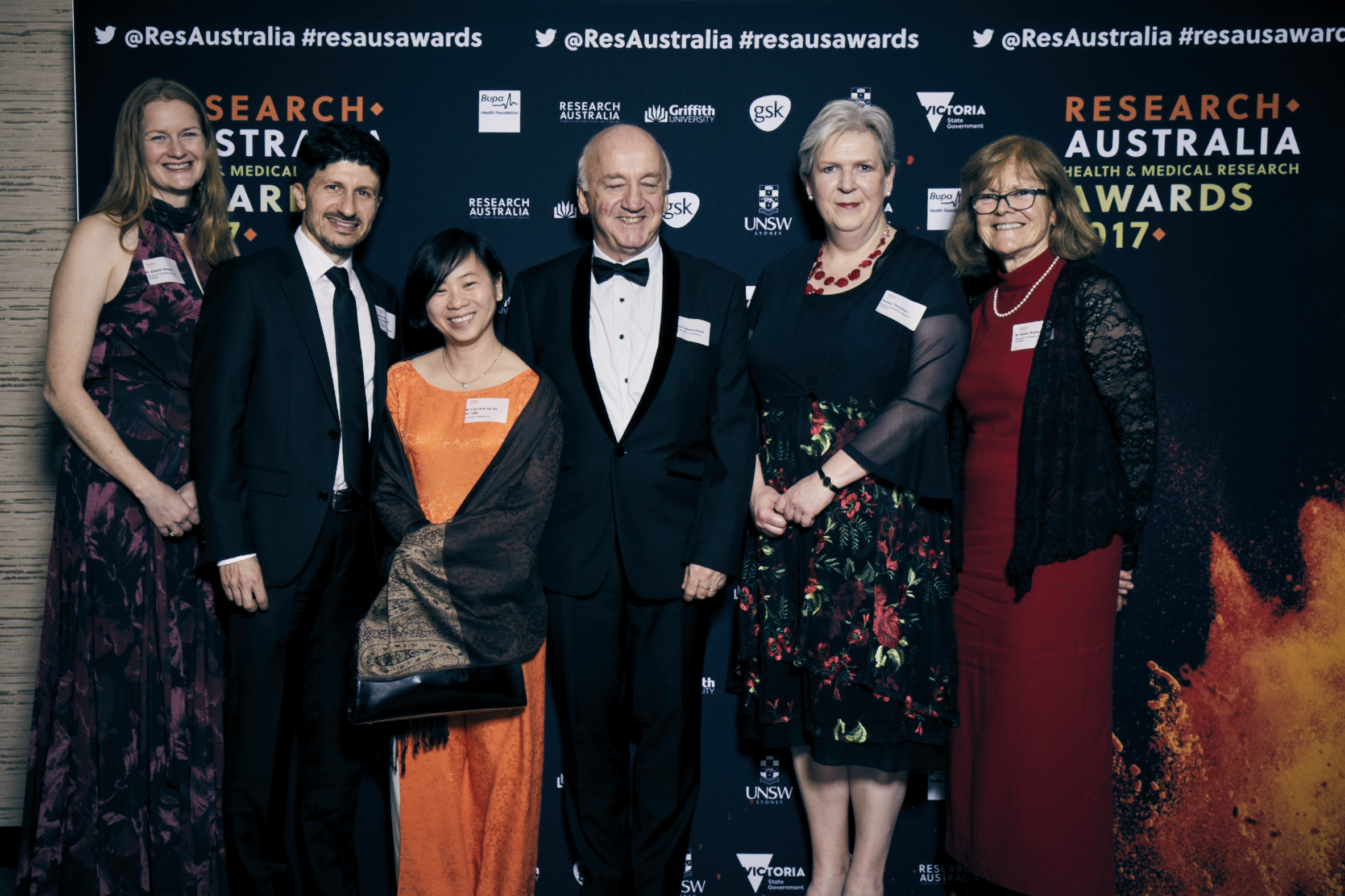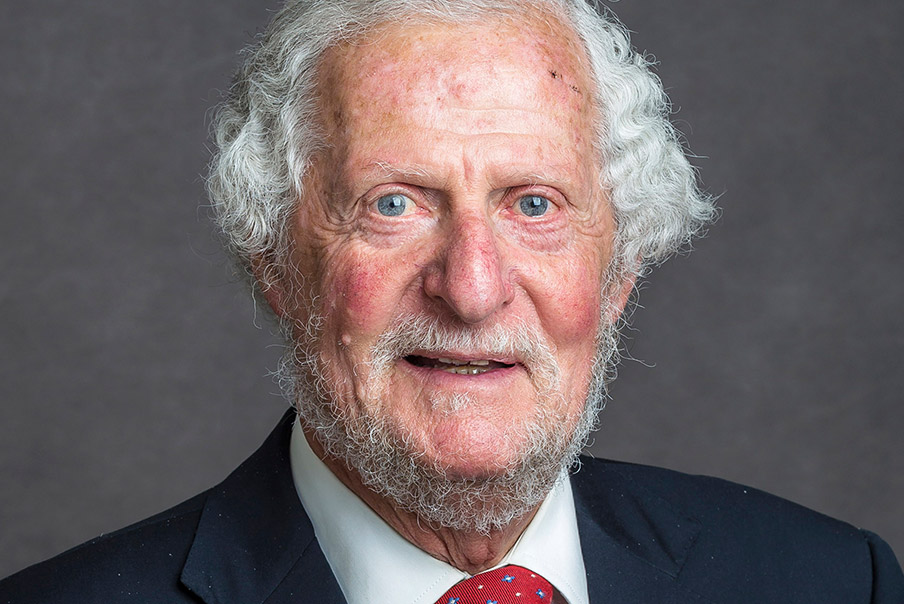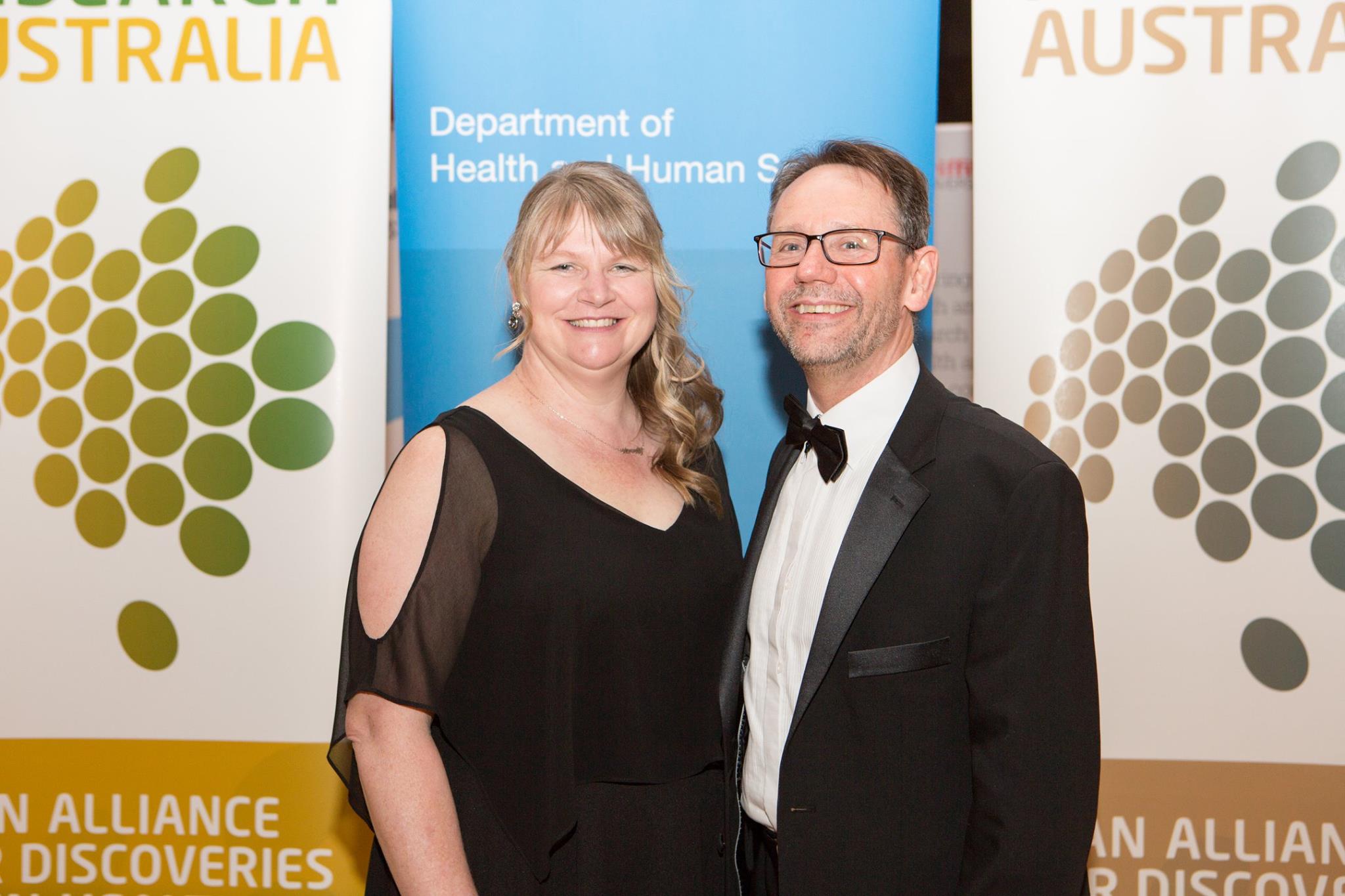Congratulations to the Health Services Research Award Finalist: Professor Claire Jackson
Congratulations to the winner of the Peter Wills Medal: Professor Kathryn North AC FAHMS
Congratulations to the Griffith University Discovery Award Finalist: Dr Berhan Ayele Haile
Congratulations to the Griffith University Discovery Award Finalist: Dr Lucia Romani
Supporting Clinical Quality Registries – towards a national strategy
Clinical Quality Registries (CQRs) collect and use data about patients’ treatments to improve the delivery of healthcare. CQRs already play a vital role in helping Australia deliver safer, higher quality healthcare, but the approach to CQRs in Australia is ad hoc and fragmented. The Australian Commission for Safety and Quality in Healthcare has been working for more than a decade to improve this situation and the Australian Government has recently released a draft National CQR Strategy for the next 10 years.
Research Australia made a submission in response to the Draft Strategy, welcoming the progress being made in this area, and making suggestions for how the Draft Strategy could be improved. These include broadening the focus from the clinician/patient relationship to capture other patient interactions with staff that affect health care. Accreditation of CQRs and a sustainable national funding model with the support of state and territory governments are also critical elements for the Strategy.
Research Australia’s submission is available here.
The Commonwealth Department of Health subsequently released the final National Clinical Quality Registry and Virtual Registry Strategy 2020-2030 in February 2021, available here. The nomination of key target areas for CQRs and a sustainable funding model for these are no longer part of the Strategy, although funding for key areas is still likely, possibly from the MRFF.
2017 The Peter Wills Medal Winner: Professor Kim Mulholland
Congratulations to Award Winner:
Professor Kim Mulholland
Professor Kim Mulholland’s 40 year career in global health has taken him from clinical
care of refugees in India and Sudan to public health and research in the field of child health. Continue reading “2017 The Peter Wills Medal Winner: Professor Kim Mulholland”
2016 The Peter Wills Medal Winner: Professor Ian Gust AO
Research Australia
Health & Medical Research Awards
2016 The Peter Wills Medal
Congratulations to Award Winner: Professor Ian Gust AO
Continue reading “2016 The Peter Wills Medal Winner: Professor Ian Gust AO”
2015 Health Services Research Award: Prof Jeffrey Braithwaite
Research Australia
Health & Medical Research Awards
2015 Victorian Government Health
Services Research Award
Award Winner
Prof Jeffrey Braithwaite
Foundation Director, Australian Institute
Of Health Innovation, Macquarie University
Professor Jeffrey Braithwaite, BA, MIR (Hons), MBA, DipLR, PhD, FAIM, FCHSM, FFPH RCP (UK) is Foundation Director, Australian Institute of Health Innovation, Director, Centre for Healthcare Resilience and Implementation Science, and Professor of Health Systems Research, Faculty of Medicine and Health Sciences, Macquarie University, Australia. His research examines the changing nature of health systems, particularly patient safety, standards and accreditation, leadership and management, the structure and culture of organisations and their network characteristics, attracting funding of more than AUD$59 million.
Professor Braithwaite has published extensively (over 600 total publications) and he has presented at international and national conferences on more than 780 occasions, including over 75 keynote addresses. His research appears in journals such as British Medical Journal, The Lancet, Social Science & Medicine, BMJ Quality and Safety, International Journal of Quality in Health Care, Journal of Managerial Psychology, Journal of the American Medical Informatics Association, and many other prestigious journals. Professor Braithwaite has received numerous national and international awards for his teaching and research. Further details are available at his Wikipedia entry: http://en.wikipedia.org/wiki/Jeffrey_Braithwaite.
He has conducted large-scale research over two decades on clinical and organizational performance, health systems improvement and patient safety. Professor Braithwaite was author of a major study into health care inquiries, Patient safety: a comparative analysis of eight inquiries in six countries, UNSW, 2006 and another on the appropriateness of care in Australia (BMJ Open, 2012 and Medical Journal of Australia, 2012).
Professor Braithwaite recently co-edited a book with Professors Erik Hollnagel in Denmark and Bob Wears in the United States (Resilient Health Care, Ashgate, 2013), which proposes new models for tackling patient safety in acute settings and a second book in the series, The Resilience of Everyday Clinical Work, was published in 2015. His book on health reform in 30 countries with Professors Julie Johnson in Australia, Yukihiro Matsuyama in Japan and Russell Mannion in the UK was also published in 2015. A new book discussing sociological perspectives on patient safety with Professors Davina Allen at Cardiff University, Jane Sandall at King’s College, London and Justin Waring at Nottingham University.
Noteworthy projects in recent times include the CareTrack study, which found that 57% of care delivered to Australians is in line with level 1 evidence or consensus based guidelines. This was described by the editor of the Medical Journal of Australia when it was published in 2012 as the most important publication in that journal for the last 10 years. This study has been very influential amongst policy makers, managers, clinicians and patient groups in Australia and internationally. Another key project is the work he did with 30 countries, culminating in a book published in 2015. He included low, middle income and rich countries, looking at their reform activities and their quality and safety
initiatives. This work shows that reform is not an episodic activity. Every health system is continuously reforming and attempting to improve the care that is delivered. This work suggests that insufficient resources are allocated to evaluating reform measures and improvement activities.
.
Principles for Accessing Publicly-Funded Data for Research Purposes
In December 2014 the National Health and Medical Research Council undertook a targeted consultation on a draft of the ‘Principles for Publicly-Funded Data for Health Research’ (the Principles).
Research Australia is of the view that the Principles could do more to support the linking of data from different datasets and the submission addressed this matter. It also provided some comments on the specific wording of the Principles and proposes an addition to the Glossary.




